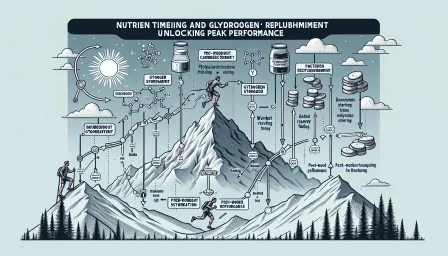How Food Journaling for Health Goals Can Transform Your Wellbeing

Discover the transformative power of food journaling for health goals. Learn how to track your diet to improve your wellbeing, attain your health objectives, and foster mindful eating patterns.
Discover the transformative power of food journaling for health goals. Learn how to track your diet to improve your wellbeing, attain your health objectives, and foster mindful eating patterns.
Introduction
In today's fast-paced world, maintaining optimal health can often seem like an overwhelming challenge. However, one simple yet effective method that has been gaining attention is food journaling. This practice not only helps you keep track of what you eat but also serves as a catalyst for achieving various health goals. In this article, we'll delve into the concept of food journaling for health goals, its numerous benefits, and how you can get started with this transformative practice.
What is Food Journaling?
Food journaling involves recording all the foods and beverages you consume throughout the day. This can include details like portion sizes, timing, and even your feelings or hunger cues at the time of eating. The primary purpose is to create a detailed log that can help you better understand your eating habits and patterns.
The Benefits of Food Journaling
1. Enhances Self-Awareness
One of the most significant benefits of food journaling is heightened self-awareness. By tracking your meals, you become more conscious of what you're putting into your body, which can lead to more mindful eating choices. Self-awareness is the first step towards making positive changes in your diet.
2. Identifies Dietary Patterns
Food journaling allows you to identify patterns in your eating habits, such as frequent snacking, late-night eating, or overconsumption of certain food groups. Recognizing these patterns can help pinpoint areas that need adjustment to align better with your health goals.
3. Aids in Weight Management
For those looking to manage their weight, food journaling can be a powerful tool. By keeping a detailed record, you can ensure you stay within your calorie limits and make adjustments as needed. A study in the American Journal of Preventive Medicine found that individuals who maintained a food journal lost twice as much weight as those who did not.
4. Tracks Nutritional Intake
Monitoring your nutritional intake is crucial for maintaining a balanced diet. Food journaling helps you ensure that you are getting the right quantities of essential nutrients such as vitamins, minerals, proteins, and fats. This can be particularly beneficial for individuals with specific health concerns or dietary restrictions.
5. Promotes Accountability and Motivation
Having a food journal makes you accountable for your eating habits. It serves as a visual reminder of your goals and can motivate you to stick to your planned diet. Sharing your journal with a healthcare provider or a nutritionist can provide an additional layer of accountability and professional guidance.
How to Start Food Journaling for Health Goals
Choosing the Right Format
There are various ways to maintain a food journal, ranging from traditional pen-and-paper methods to digital apps. Choose a format that fits your lifestyle and preferences. Popular digital tools like MyFitnessPal, Lose It!, and Cronometer offer ease of use and advanced tracking features.
Essential Elements to Record
To get the most out of your food journal, make sure to include the following elements:
- Date and Time: When you consumed each meal or snack.
- Food and Drink Details: Specific items you ate, along with portion sizes.
- Calories and Macronutrients: If your goal is weight management or fitness-related, tracking calories, proteins, fats, and carbs is crucial.
- Emotions and Hunger Levels: Noting your emotional state and hunger cues can reveal patterns related to emotional or stress eating.
Set Clear and Achievable Goals
Having clear goals is essential for effective food journaling for health goals. These should be specific, measurable, attainable, relevant, and time-bound (SMART). For instance, aim to increase your vegetable intake, reduce sugar consumption, or drink a specified amount of water daily.
Overcoming Common Challenges
Consistency
Maintaining a food journal consistently is perhaps the most challenging aspect. To stay on track, set reminders or schedule a specific time each day for journaling. The more you make it a routine, the easier it will become.
Honesty
For a food journal to be effective, it is crucial to be honest and accurate. Avoid the temptation to omit indulgent foods or underestimate portion sizes. Remember, the primary goal is to observe and improve your habits, not to judge yourself.
Time Management
Concerned about the time commitment? Start with just a few days a week and gradually increase the frequency. Using digital apps can significantly reduce the time required, thanks to quick input features and extensive food databases.
Leveraging Your Journal for Better Health Guidance
Sharing your food journal with healthcare providers, nutritionists, or dietitians can provide valuable insights. They can help you interpret your data, offer personalized advice, and make recommendations to improve your diet.
Monitoring Progress
Regularly reviewing your food journal allows you to track your progress towards your health goals. Celebrate small victories and adjust your strategies as needed. This ongoing evaluation ensures you stay aligned with your health objectives.
Conclusion
Food journaling for health goals is more than just a trend; it’s a proven method for improving wellbeing, achieving dietary objectives, and fostering a mindful eating relationship. With heightened self-awareness, better nutritional monitoring, and increased accountability, the benefits are plentiful. By adopting this practice and overcoming common obstacles, you can transform your eating habits and ultimately your overall health. Start your food journaling journey today, and unlock the potential for a healthier, more conscious life.



























